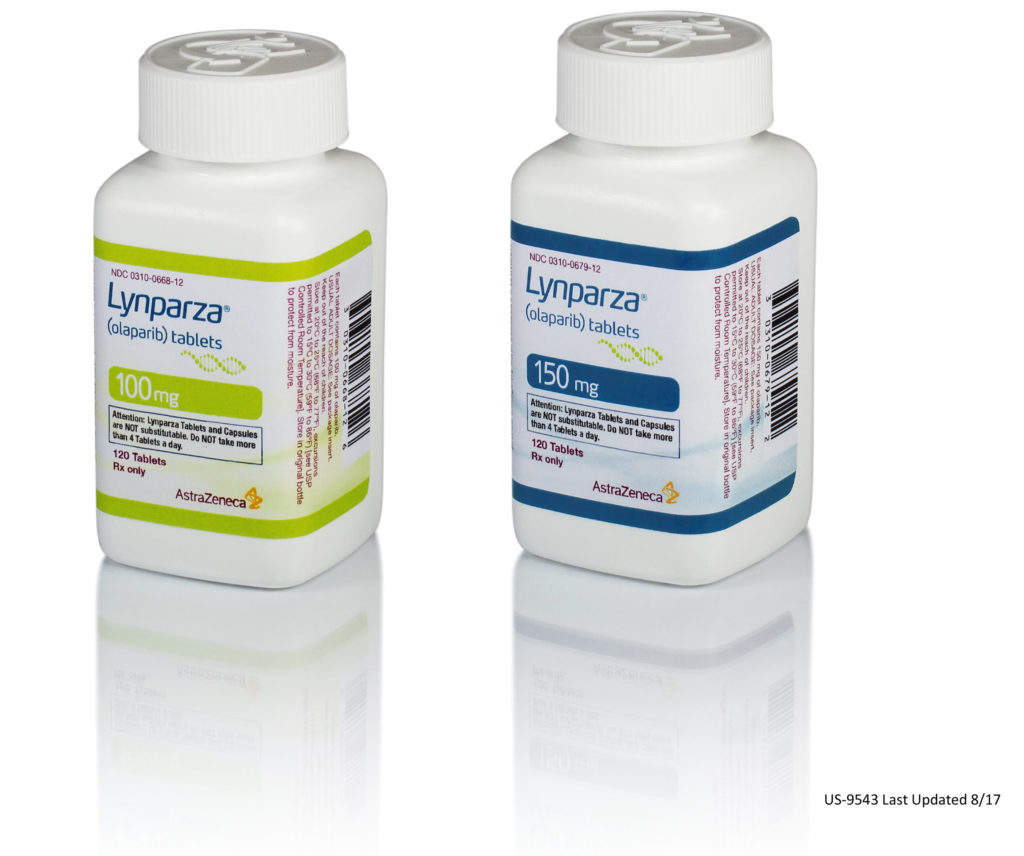AstraZeneca and MSD said that Lynparza (olaparib) in combination with standard-of-care (SoC) bevacizumab succeeded in a phase 3 trial in advanced ovarian cancer by meeting the primary endpoint.

Image: Lynparza tablets. (Credit: AstraZeneca)
Subscribe to our email newsletter
The late-stage study called PAOLA-1 evaluated Lynparza plus bevacizumab in the first line maintenance setting in comparison to bevacizumab alone in women with advanced ovarian cancer, irrespective of BRCA gene mutations.
The primary endpoint, which was met in the trial, is a statistically-significant and clinically-meaningful improvement in progression-free survival (PFS). The investigational combination was shown to have increased the survival of women without disease progression or death in comparison to SoC alone.
MSD Research Laboratories senior vice president, global clinical development head, and chief medical officer Roy Baynes said: “In this co-operative group trial sponsored by ARCAGY Research, maintenance treatment with Lynparza when added to a standard-of-care treatment was evaluated in an environment representative of real clinical practice.
“By studying Lynparza in this broader patient population, we have learned more about how it may help even more patients with advanced ovarian cancer in the future.”
The safety and tolerability profiles noted in the phase 3 trial were generally on par with those known for the two constituent drugs of the investigational regimen. AstraZeneca said that PAOLA-1 is the second positive phase 3 trial with Lynparza in first line advanced ovarian cancer.
AstraZeneca oncology R&D executive vice president José Baselga said: “The positive results from the PAOLA-1 trial demonstrate a clear potential benefit of adding Lynparza to the standard-treatment bevacizumab for women with advanced ovarian cancer.
“Following positive results from the SOLO-1 trial for women with a BRCA gene mutation, the PAOLA-1 trial marks yet another positive Phase III trial for Lynparza as a 1st-line maintenance treatment for women with advanced ovarian cancer.”
Jointly developed and commercialised by AstraZeneca and MSD, Lynparza is a poly ADP-ribose polymerase (PARP) inhibitor which has been approved for multiple cancer indications across the world. The cancer drug has been designed to preferentially destroy cancer cells by exploiting DNA damage response (DDR) pathway deficiencies like BRCA mutations.
In another development, AstraZeneca has secured breakthrough therapy designation for Calquence (acalabrutinib) from the US Food and Drug Administration (FDA) as a monotherapy treatment for chronic lymphocytic leukaemia (CLL) in adults.
The breakthrough therapy designation was granted based on positive data from the interim analyses of the ELEVATE-TN and ASCEND phase 3 trials. In the two late-stage trials, Calquence as a monotherapy or in combination was shown to have significantly increased the time patients lived without disease progression or death.
 Advertise With UsAdvertise on our extensive network of industry websites and newsletters.
Advertise With UsAdvertise on our extensive network of industry websites and newsletters.
 Get the PBR newsletterSign up to our free email to get all the latest PBR
news.
Get the PBR newsletterSign up to our free email to get all the latest PBR
news.

